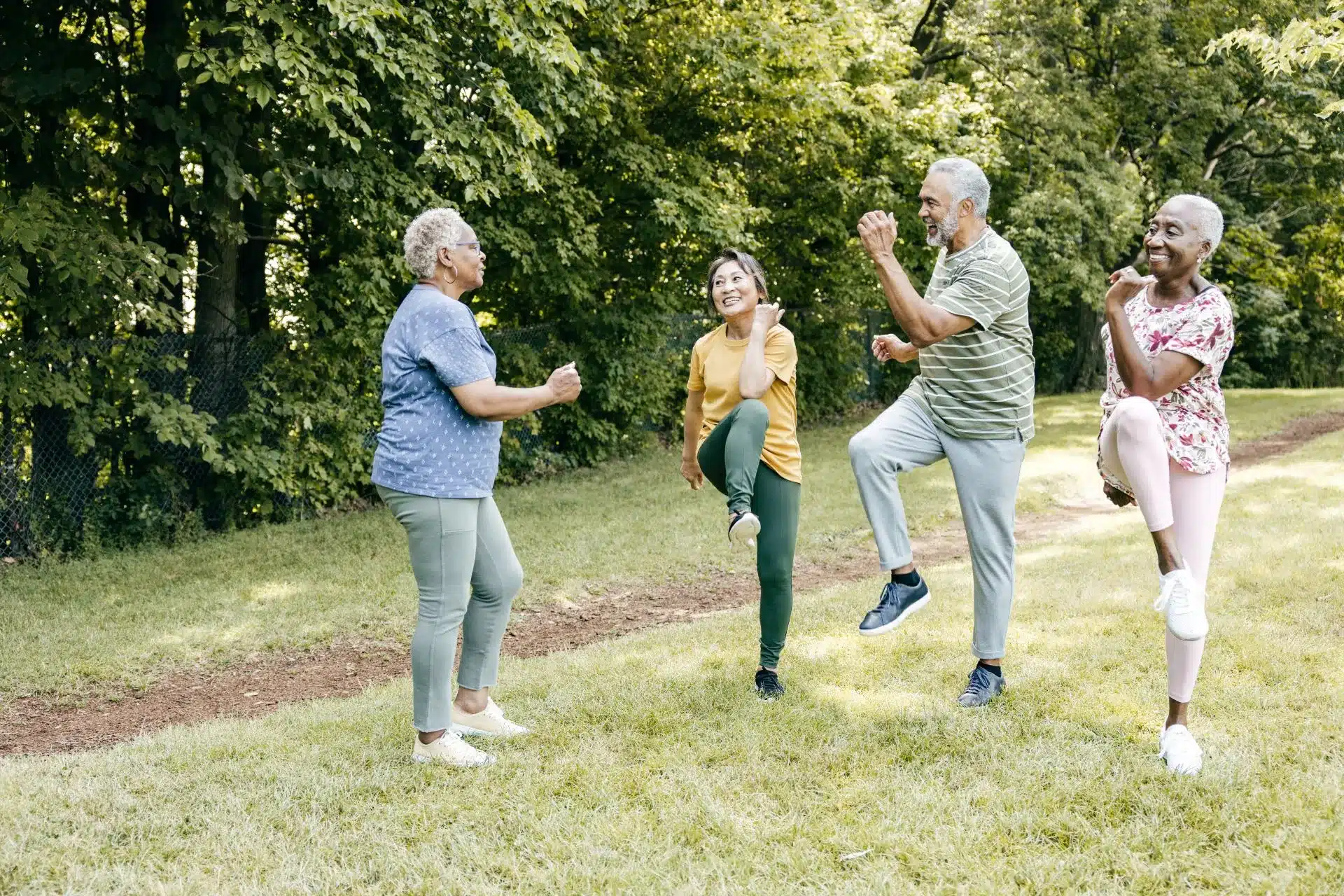In a society that often glorifies youth, the concept of aging gracefully stands out as a testament to the beauty and dignity inherent in the natural aging process. Aging gracefully isn’t about denying the passage of time; rather, it’s about embracing it with a positive mindset and taking proactive steps to maintain health and well-being at every stage of life.
The modern approach to aging gracefully goes beyond mere acceptance. It involves an active engagement in life, a commitment to health, and an openness to innovation and new ideas. This article delves into various aspects of aging, from nutrition and physical activity to mental health, and explores the latest advancements in anti-aging research. We aim to provide a comprehensive guide to not just add years to your life, but more importantly, life to your years.
Join us as we uncover the secrets to aging with grace and vitality, offering practical tips and innovative strategies to help you navigate the aging process with confidence and poise.
Nutrition and Aging: How Diet Influences the Aging Process
The Impact of Nutritional Choices on Aging
The role of nutrition in aging cannot be overstated. What we eat directly affects the aging process, influencing everything from skin health to cognitive function. A balanced diet rich in vitamins, minerals, and antioxidants can help combat the signs of aging and reduce the risk of age-related diseases.
Antioxidant-Rich Foods for Cellular Health
Antioxidants play a critical role in fighting the damage caused by free radicals, which are implicated in the aging process and various diseases. Foods rich in antioxidants, such as berries, leafy greens, nuts, and seeds, should be staples in a diet aimed at aging gracefully.
The Importance of Omega-3 Fatty Acids
Omega-3 fatty acids, found in fish, flaxseeds, and walnuts, are essential for maintaining brain health and reducing inflammation, which is a key factor in aging. Incorporating omega-3-rich foods into your diet can have significant benefits for your cognitive and overall health as you age.
Hydration and Aging
Proper hydration is crucial for maintaining skin elasticity and overall physiological functions. As we age, our sense of thirst diminishes, making it even more important to consciously include hydrating foods and fluids in our daily routine.
Moderation and Variety in Diet
A varied diet that focuses on moderation and balance is key to aging gracefully. Including a wide range of fruits, vegetables, whole grains, lean proteins, and healthy fats ensures a comprehensive intake of all the nutrients needed for healthy aging.
In conclusion, embracing a nutritious diet is a fundamental part of aging gracefully. By focusing on antioxidant-rich foods, omega-3 fatty acids, proper hydration, and a varied diet, we can significantly influence our aging process, promoting health and vitality well into our later years.
Physical Activity and Its Impact on Aging: Finding the Right Balance

The Lifelong Benefits of Regular Exercise
Regular physical activity is a key ingredient in the recipe for aging gracefully. Exercise benefits nearly every aspect of health as we age, from maintaining muscle mass and bone density to enhancing mental health and cognitive function.
Tailoring Exercise to Different Life Stages
As we age, the type of physical activity that suits us best may change. For younger adults, high-intensity workouts might be more appealing and beneficial, while older adults may benefit more from low-impact exercises like walking, swimming, or yoga. The key is to find activities that are enjoyable and sustainable.
Strength Training for Aging Muscles
Strength training is particularly important as we age. It helps counteract the loss of muscle mass and strength, a natural part of the aging process. Incorporating resistance exercises, whether using weights or bodyweight, can significantly enhance mobility and reduce the risk of falls.
The Role of Flexibility and Balance
Incorporating flexibility and balance exercises into a regular routine is essential for aging gracefully. Activities like tai chi or stretching routines can improve balance, reduce the risk of falls, and enhance overall mobility.
Exercise as a Social Activity
For many, exercise can also be a social activity, providing opportunities to connect with others. Group classes, walking clubs, and sports teams can offer social interaction, which is itself a vital component of healthy aging.
In conclusion, physical activity is crucial for aging gracefully. By finding the right balance and type of exercise, and incorporating it into our daily lives, we can significantly impact our health and well-being as we age.
Mental Health and Emotional Well-Being: Key Factors in Aging Gracefully
The Link Between Mental Health and Aging
Mental health is a critical component of aging gracefully. Emotional well-being directly impacts physical health and can influence how we experience the aging process. Maintaining a positive outlook, managing stress, and nurturing mental health are as important as physical care.
The Role of Mindfulness and Meditation
Practices like mindfulness and meditation have been shown to have numerous benefits for mental health, especially in older adults. They can reduce stress, improve sleep quality, and enhance cognitive function, all of which contribute to a healthier aging process.
The Importance of Social Engagement
Remaining socially engaged as we age is vital for mental health. Strong social connections are linked to reduced risks of depression, anxiety, and cognitive decline. Activities that foster social interaction, whether through community groups, hobbies, or spending time with family and friends, are essential for emotional well-being.
Coping with Change and Loss
Aging often brings changes and losses, including retirement, the loss of loved ones, and physical changes. Developing coping strategies and seeking support when needed are key to maintaining mental health during these transitions.
Lifelong Learning and Mental Stimulation
Engaging in lifelong learning and activities that challenge the brain can help maintain mental sharpness. This could include anything from reading and puzzles to taking up new hobbies or learning new skills.
In conclusion, mental health and emotional well-being are foundational to aging gracefully. By prioritizing these aspects through mindfulness, social engagement, coping strategies, and mental stimulation, we can enhance our experience of aging and maintain a high quality of life as we grow older.

Innovative Medical Advances and Anti-Aging Research: Exploring New Frontiers
The Evolution of Anti-Aging Research
The field of anti-aging research has seen remarkable advancements in recent years, driven by a deeper understanding of the biological processes that underlie aging. Innovations in this field are not just about extending lifespan, but also about enhancing the quality of life in later years.
Genetic and Cellular Insights
One of the most exciting areas of research involves the genetic and cellular factors that influence aging. Scientists are exploring how certain genes and cellular pathways, like those involved in DNA repair and telomere maintenance, impact the aging process and how they can be manipulated to promote healthy aging.
Breakthroughs in Regenerative Medicine
Regenerative medicine, including stem cell therapy and tissue engineering, offers promising prospects for repairing or replacing aged or damaged tissues. This field has the potential to revolutionize the treatment of age-related diseases and conditions, contributing to longer, healthier lives.
The Role of AI and Big Data
Artificial intelligence and big data are playing an increasingly important role in anti-aging research. By analyzing vast amounts of health data, researchers can identify patterns and develop personalized interventions to combat aging and its associated conditions.
The Future of Longevity
As research continues, the future of longevity looks brighter than ever. With ongoing advancements in science and technology, we are moving closer to a world where aging is not just delayed but is accompanied by vitality and a high quality of life.
In conclusion, innovative medical advances and anti-aging research are pushing the boundaries of what’s possible in extending human life and enhancing its quality. As we continue to explore these new frontiers, we open up exciting possibilities for aging gracefully and healthily.
The Longevity plan is a holistic approach to extending a healthy and vibrant life. By incorporating nutrient-dense foods, regular physical activity, stress management, and social connections, this comprehensive lifestyle strategy not only adds years to your life but also enhances the quality of those years. It's the blueprint for a fulfilling and thriving journey towards a long and joyful life.
Lifestyle Choices and Habits: Practical Tips for Aging Well
Embracing a Holistic Approach to Aging
Aging well involves a holistic approach that encompasses both physical and mental health. It’s about making conscious lifestyle choices that contribute positively to our well-being as we age. Here, we offer practical tips to help you embrace this journey with confidence and grace.
Prioritizing Sleep and Rest
Good quality sleep is fundamental to aging well. It helps in repairing and rejuvenating the body and mind. Establishing a regular sleep routine and creating a restful environment can significantly impact your overall health.
The Importance of Stress Management
Chronic stress can accelerate the aging process. Adopting stress-reduction techniques like meditation, deep breathing exercises, and spending time in nature can help maintain a balanced and healthy life.
Continuous Learning and Cognitive Engagement
Keeping the brain active through learning and cognitive engagement is crucial. Activities like reading, puzzles, learning new skills, or engaging in creative pursuits can keep the mind sharp and contribute to a sense of fulfillment.
Building and Maintaining Social Connections
Strong social connections are vital for emotional and mental health, especially as we age. Regular interaction with friends, family, and community can provide support, joy, and a sense of belonging.
Regular Health Check-Ups
Regular health check-ups and screenings are essential for early detection and management of age-related health issues. Being proactive about health can lead to better outcomes and a higher quality of life in later years.
In conclusion, aging well is about embracing a balanced lifestyle that nurtures both the body and mind. By adopting these practical tips and making mindful choices, we can enjoy our later years with vitality, health, and happiness.
Conclusion: Embracing the Art of Aging Gracefully
As we conclude our exploration of aging gracefully, it’s clear that this journey is about much more than just the passage of time. It’s about embracing life with a positive attitude, making conscious choices for our health and well-being, and continuously adapting to the changes that come with each new phase of life.
Aging gracefully isn’t just a goal; it’s a continuous process that involves a holistic approach to living. It’s about nurturing our bodies with nutritious food and regular exercise, caring for our minds through stress management and cognitive engagement, and nourishing our souls with strong social connections and a sense of purpose.
The innovative approaches and practical tips discussed in this article provide a roadmap to aging with dignity and vitality. By integrating these strategies into our daily lives, we can look forward to not only a longer life but one filled with health, happiness, and fulfillment.
Let this journey of aging gracefully be a celebration of life’s experiences, a testament to the wisdom gained over the years, and a beacon of hope for what the future holds. Here’s to aging not just with grace, but with joy and vigor!












